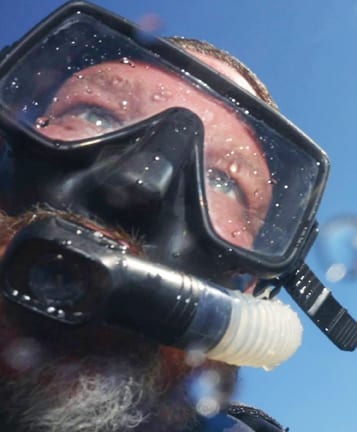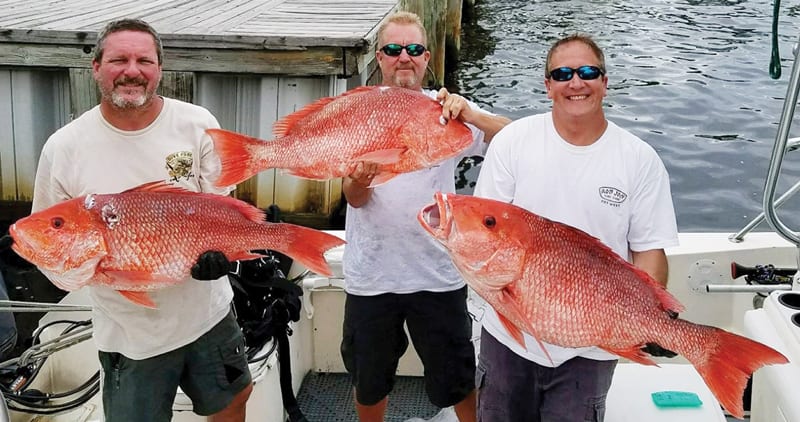By: Kerry Freeland / Dive Pros
Let me preface this article with the fact that I love seafood. I might really love diving because of my love for seafood. My very first dive trip into the Gulf of Mexico, I was able to grab a Spiny Lobster and shoot a Triggerfish. It took a couple of tries with my newly acquired pole spear, but I did it, I brought home the groceries. I love oysters, I have had them cooked in amazing ways, and continue to enjoy them raw, slurped right out of the shell.
I sit on the Escambia County Marine Advisory committee. Our last meeting hosted the annual Seafood Safety Symposium, and though I have taken in many of these before, I still manage to walk away a little more educated. Despite discussions on topics that have never been covered before such as Red Tide, and the northern Gulf of Mexico becoming an emerging area of concern for Ciguatera, the most poignant fact I walked away with was the reality that very few people are aware of the advisories and recommendations put out by health departments and other state agencies.
Did you know that small children and women of child bearing age should not eat Cobia, at all, ever? I love Cobia. One regional name for it is Lemonfish because it has a naturally lemony taste and it holds mercury like crazy. There are recommendations for adult males that I am now paying attention to. A good friend of mine is quite often a weighmaster at numerous fishing tournaments throughout the region. He is aware of these health advisories and when he officiates weighing in a large King Mackerel, he always asks the angler if they are familiar with these advisories. He tells me that the anglers rarely know anything about the health advisories. According to the Florida Department of Health, no one should eat King Mackerel if it is over 31 inches in length, too much Mercury.
As stated earlier, Ciguatera used to be something we were only concerned with when in the Caribbean. It has been found that the dinoflagellate’s that form the basis for this neurotoxic fish poisoning are now being found on the oil rigs in the northern Gulf on Mexico. The partaking of local seafood is not all doom and gloom. At Dive Pros we have been educating people on Lionfish preparation and consumption since early 2011. We always prepare the Lionfish very simply so that people can really taste the fish itself. These efforts have been paying off as more and more people are targeting Lionfish for their table fare. Without this knowledge and exposure most would probably think this is a poisonous fish and stay away from them. We keep pocket sized consumption advisory cards for the public to have at Dive Pros. I routinely engage in conversation with those who have small children to make certain they understand that there are limits on what they should be eating.
The world is changing and the best way to protect yourself and your family is to be informed. Take the time to educate yourself on the consumption advisories for where you live, and you will be able to make safer decisions on what you and your family consumes. As for me, well it is March, and I am off to have another dozen raw oysters before it warms up too much.
For more information, contact Dive Pros at #850-456-8845

